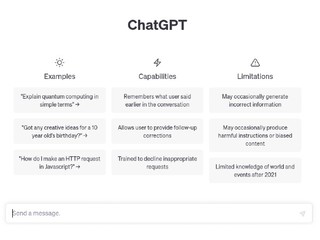
Hippocratic AI teams up with Adtalem to train clinicians on AI
Topics will include integration of AI into clinical workflows, ethical and regulatory considerations
 AI has come for healthcare: in the first of this year, 34% of dollars invested in digital health startups went to companies leveraging artificial intelligence, while the global artificial intelligence in the healthcare market, which was valued at $16.3 billion in 2022, is expected to grow to reach $173.55 billion by 2029, a CAGR of 40.2%.
AI has come for healthcare: in the first of this year, 34% of dollars invested in digital health startups went to companies leveraging artificial intelligence, while the global artificial intelligence in the healthcare market, which was valued at $16.3 billion in 2022, is expected to grow to reach $173.55 billion by 2029, a CAGR of 40.2%.
These technologies are quickly becoming a pivotal part of the healthcare workflow, but that also means that healthcare professionals, who are already burning out to the point where there are massive shortages, are now needing to understand how to use AI to stay at the top of their field, only adding to their workload.
To help with these professionals, Hippocratic AI, a company that has developed what it says is the industry’s first safety-focused Large Language Model (LLM) designed specifically for healthcare, has announced a partnership with Adtalem Global Education, a healthcare education provider.
Together, they are developing a suite of educational materials to train clinicians on the use of AI in healthcare, with topics that include an introduction to AI and generative AI, AI tools and technologies, applications in nursing, integration of AI into clinical workflows, ethical considerations, and regulatory considerations.
The collaboration between Hippocratic and Adtalem will integrates nurses’ experience with the capabilities of AI, with the goal of giving healthcare professionals the skills so they can evaluate, navigate, and ethically utilize AI tools in patient care.
Hippocratic AI, which officially launched out of stealth last year, was founded by a group of physicians, hospital administrators, Medicare professionals, and artificial intelligence researchers from El Camino Health, Johns Hopkins, Washington University in St. Louis, Stanford, UPenn, Google, and Nvidia.
The company is building a number of features that make its language model safer and tuned to the healthcare industry’s needs, including certifying its system on the US Medical Licensing Exam (USMLE), while also certifying it on 114 different healthcare certifications. It also built in voice capabilities through which the LLM can detect tone and can, as co-founder and CEO Munjal Shah told VatorNews as the time, "communicate empathy far better than you can via text only."
Hippocratic has also done Reinforcement Learning with Human Feedback (RLHF) with healthcare professionals, which is what allowed OpenAI to make the leap from GPT3 to ChatGPT, though they did it with average consumers, not medical professionals.
The Chicago-based Adtalem Global Education, meanwhile, operates several for-profit higher education institutions in the medical and healthcare space including American University of the Caribbean School of Medicine, Chamberlain University, Ross University School of Medicine, and Ross University School of Veterinary Medicine. It serves over 80,000 students, with a community of over 300,000 alumni and nearly 10,000 employees.
The curriculum, which will be designed with foundational modules that will evolve and uplevel the content over time to address the new developments and emerging needs of AI technology, will be integrated into the existing curriculum at Chamberlain University and Walden University, expected in Spring 2025, and eligible students will earn a certification upon completion.
"We are proud to partner with leading institutions, Adtalem’s Chamberlain University and Walden University, to create the first AI certification that is focused on the role of nurses in understanding, integrating, and supervising AI," Amy McCarthy, DNP, RNC-MNN, NE-BC, CENP, Chief Nursing Officer of Hippocratic AI, said in a statement.
"This program will empower the next generation of healthcare professionals to harness AI's potential, ultimately improving patient outcomes and advancing the field of healthcare."
(Image source: hippocraticai.com)
Related News



